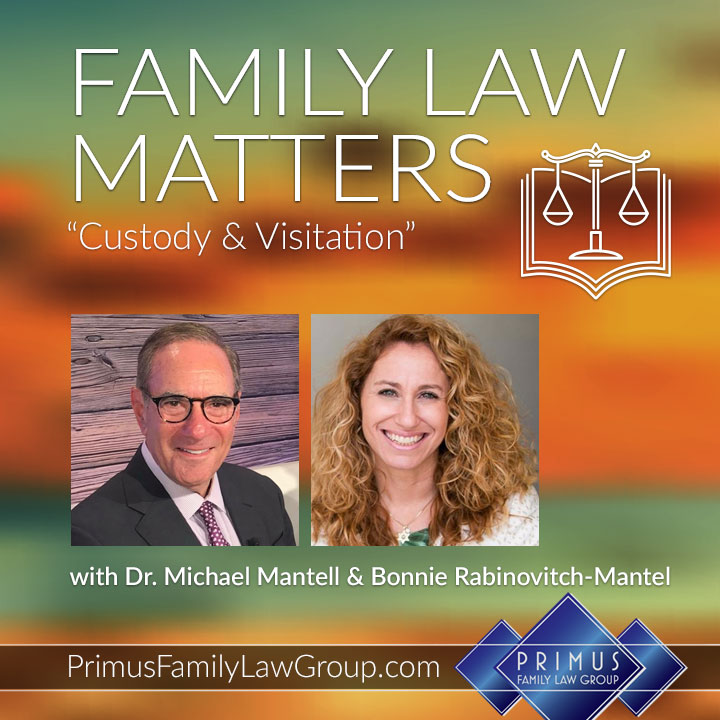(0:00 – 0:41)
You know, Michael, I do find it interesting, as a parent, I personally don’t think, personally, that my 14-year-old has all the same skills and experience to decide for them where they’re going to live. It’s funny, because obviously they’re not old enough to do so many things, but yet in the eyes of the family court, when they are 14, they get to have a say. Now, of course, there are certain factors that the court will consider before a child of 14 has a say, like whether or not they’re a good student, are they a troublemaker, are they mature, all of the things that are important when allowing youngsters to make decisions.
(0:41 – 1:04)
But it can be difficult for a parent who’s like, wait a minute, how does this child who is 14 and yay tall, get to make any decisions, I’m the parent. And that’s where often the struggle comes in. You can see that where a child is old enough, 14, 15, but not old enough to make these decisions, and yet they do get to have a say.
(1:06 – 1:47)
So sometimes, though, it isn’t so much that the kid just leans towards this parent, or the parent is nicer to me, serves the kind of food I like, the bed is more comfortable. There are some real concerns that go on in that house compared to that house. When does this become a courtroom matter? Well, if there are concerns for the welfare and safety of a child, and the child is older, well, what’s good about that is the child calls the other parent, or even 911 and says, hey, there’s a real issue here, and the authorities will likely place them with the other parent.
(1:47 – 2:36)
If something is disclosed by the child when they go back to the other parent, well, you know, a good attorney can file an ex parte, which is an emergency hearing to have the child placed in the care of the stable parent, so that we can address the issues with the unstable parent. You mentioned the word stable and unstable. When would a parent be required to have a psychological examination as part of this custody visitation struggle? When the parent would be required to have is when they’ve made so many decisions or behaviors that lead attorneys to file motions to ask a judge to say, hey, here’s what’s been going on.
(2:36 – 2:58)
Here’s how that’s putting the child at risk and that person at risk. We need to have some sort of psychological evaluation as to the fitness of this parent. But I will tell you, Michael, you better have some serious evidence before you go in a court and ask a judge to do that, because obviously it’s a constitutional infringement of privacy.
(2:58 – 3:10)
I mean, it touches so many levels. You’re calling into question the fitness of a human being to parent their own child. So you better have some serious evidence before you go down that rabbit hole.
(3:10 – 3:28)
Every time I’ve been involved in a case like that, the other parent, the one who says you have who’s been told I have to have a psych, guess what? So do you. So before you point that finger, one, two, three, there’s three other fingers pointing back at you. Be ready to have your own psych.
(3:28 – 3:39)
That’s going to happen. This is a very difficult topic, Bonnie. When people have questions about this, they want to reach you.
(3:39 – 4:31)
I know that, you know, you’re not someone who’s seven days a week, 24 hours a day, but you’re darned available. And if people do have a question and they want to reach you, how can they be in touch with you? Well, Michael, they can reach us at the office at 619-574-8000. Say that again.
I forgot my phone number. They can reach us at the office at 619-574-8000, and you will get onto my calendar for a free 30 minute phone consultation. Or you can reach us online at www.PrimusFamilyLaw.com. There’s a form you can fill out, submit it, and we will get right back to you and get you on my calendar for that free 30 minute phone consultation.
(4:31 – 4:48)
You’re described as having focus, ingenuity, clarity, and insight. And your responses to these questions are always right to it. If people have questions about custody and visitation or anything else, I know they’re going to get a crisp, clear answer.
(4:49 – 4:54)
Thanks, Bonnie. We’ll see you at the next Family Law Matters. Thank you, Michael.
It’s always a pleasure.

